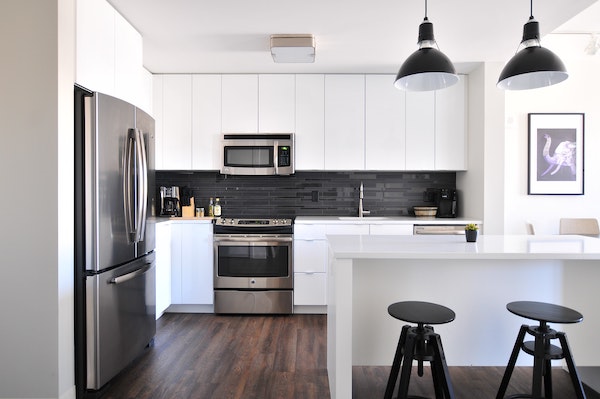
Buying a home is one of the biggest decisions – and purchases – that you’ll make in your lifetime. As such, if you’re thinking about buying a home, you should be aware of all the pathways available to you.
Many people believe that saving for a large down payment, taking out a mortgage, searching for a property, and navigating through negotiations is the only way to become a property owner. However, this is not the case!
One of the best alternative routes to homeownership is the rent-to-own model. This creative solution reshapes the traditional home buying process by making it gradual, smooth, less stressful, and more affordable.
If you’re going back and forth between rent-to-own or mortgage options, or just want to learn more about the rent-to-own system, here’s a comprehensive look at rent-to-own vs. mortgages for aspiring homeowners.
How Does Rent-to-Own Work?
Rent-to-own rewrites the traditional home buying process by providing opportunities for people struggling to meet baseline mortgage requirements and streamlining many of the common buyer pain points.
In a rent-to-own model, a renter and landlord enter into a lease agreement that enables the renter to eventually buy the property. These lease periods usually span 2 to 5 years, and during this time the future buyer lives in the home as a tenant, paying rent and living there as usual.
During their time as a renter, the landlord collects a portion of the rental payments and puts them aside for the impending home sale. When the transaction time rolls around, the buyer already has a portion of the purchasing cost set aside, alleviating some of the upfront financial burdens of buying. These payments also function to build equity on the future home before you’re even the official owner.
Perks for Sellers
When you’re approaching rent-to-own, aspiring buyers can either check out rent-to-own listings or strike a deal with their current landlord. Fortunately, rent-to-own isn’t necessarily a hard proposition to sell to landlords. As much as this system benefits renters and future buyers, it also has notable perks for the current property owner.
Landlords who are struggling to carry their home or are thinking about selling instead of keeping the asset as an income property can simplify their life by entering into a rent-to-own contract.
This saves them the trouble of the traditional home selling process, which is full of fees, expenses, and notable risks. They already have a buyer locked in so there’s no waiting for a prospect, and they’ll be able to collect passive income for the duration of the rental period. If a landlord is ready to move on from renting out their home, rent-to-own may be a wonderful idea to put on the table.
Now that we’re more familiar with the rent-to-own process, let’s check out the difference between rent-to-own and mortgage.
Rent-to-Own vs. Mortgage
Is rent-to-own worth it? Like any home buying process, rent-to-own comes with both pros and cons. Reaping the full benefits of rent-to-own all depends on the circumstances.
In a typical home sale, where buyers take out a mortgage loan and hit the market, buyers who are extremely strong financially will have a better outcome.
Getting a mortgage rate that works for you doesn’t always come easy. In fact, it’s often after tons of financial work, shopping for the best rate, and negotiating with lenders that borrowers land a loan.
Prospects who struggle to meet the typical mortgage borrowing requirements should look at rent-to-own as a viable alternative. A weak credit score, not enough savings to make a downpayment, or not being able to cover the typical home buying fees are all reasons to explore rent-to-own.
If you’re already renting the home of your dreams, entering into a rent-to-own can help you lock into the deal and secure your best purchase. With a mortgage, when you do decide to buy, there’s no guarantee your dream home will be on the market.
However, keep in mind that rental payments with rent-to-own are more expensive than a regular lease. Since a portion of the funds goes towards the property purchase, it does increase the monthly housing costs. Rent-to-own tenants are also typically responsible for maintenance costs during the rental period.
Overall, rent-to-own eases the future buyer into the transaction whereas a mortgage-funded purchase jumps right in. As each buyer’s situation is unique, it’s all about deciding which system is best suited for you.
Ready to explore your options? Take a look at rent-to-own homes near you today.
